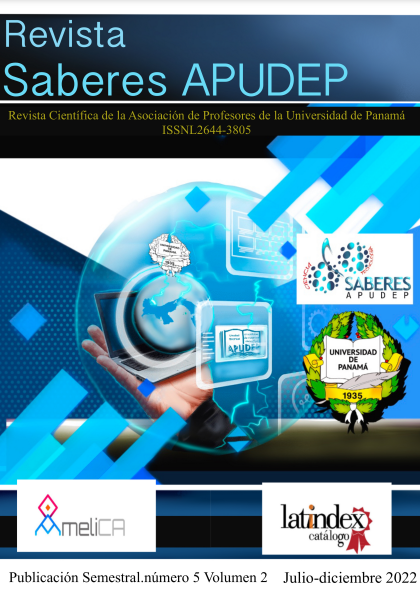References
Anzorena, O. (2008). Maestría personal. Ediciones Lea, S.A.
Barrios Bustillo, O.R. (2011). El método de análisis – síntesis en la resolución de problemas aritméticos escolares de enunciado verbal [Tesis de Grado] Universidad Pedagógica Nacional.
Corral, Y. (2014). Instrumentos de recolección de datos: validez y confiabilidad. Editorial Académica Española.
Drucker, P.F. (1967). El ejecutivo eficaz. Editorial Hobbs-Sudamericana.
Enrique, A. (2007). La comunicación empresarial en situaciones de crisis. Estudio de caso: la crisis de Fontaneda. [Tesis doctoral] Universitat Autònoma de Barcelona.
Giraldo, L., Aguilar, L. y Medina, V. (2013). Estrategias de colaboración 2.0 para la transferencia de conocimiento. Revista Scielo Ingeniería Universidad de Medellín, 12 (23), 145-156.
Gómez, J., Fedor, S. (2016). La comunicación. Redalyc, 20(3), 5-6.
González, S. (2015). El ABC de la comunicación efectiva. Grupo Nelson.
Gostick, A. y Elton, Ch. (2011). Buenos equipos, proyectos imbatibles. Random House Mondadori, S.A.
Grandlgruber, B. (2004). Abrir la caja negra: teorías de la empresa en la economía institucional. Análisis Económico, 41(XIX), 19-58.
Hernández, R., Fernández, C., y Baptista, P. (2003). Metodología de la investigación. Editorial Mc Graw Hill.
Malpica, R., Rossell, R. y Hoffman, I. (2014). Equipos de trabajo de alto desempeño. Observatorio Laboral Revista Venezolana, 7(14), 69-83.
Mendoza, J. (2018). Epistemología de la administración: objeto, estatuto, desarrollo disciplinar y método. Revista Pensamiento & Gestión. (45), 211-238.
Montes, J. (2015). Comunicación asertiva y trabajo en equipo: resultados de un programa de intervención en supervisores de una empresa. Revista Propósito y Representaciones. 2(2), 121-196.
Muñoz Hernández, M. (2012). Comunicación y productividad en pequeñas y medianas empresas de un cluster textil en Colombia. Contaduría y Administración, 57(2), 223-244.
Nabi N., Foysol K., y Adnan S. (2017). The role and impact of business communication on employee performances and job satisfactions: A case of study on Karmasangsthan Bank limited, Bangladesh. Arabian Journal of Business and A Management Review, 7(3), 1-8.
Ortega, C. (2017). Desarrollo de las habilidades blandas desde edades tempranas. Revista Cubana de Educación Superior, 35 (2) 15-89.
Pacheco, R. (2005). Competencias claves para la comunicación organizacional. Redalyc, 90, 70-75.
Peñafiel, E.; Serrano, C. (2010). Habilidades sociales. Editex, S.A. Editorial.
Sandoval, C. (2002). La investigación cualitativa. Editores Arfo.
Tito Maya, M. (2016). Desarrollo de soft skills una alternativa a la escasez del talento humano. Dialnet, 1 (12), 61-76.
Toro Suárez, L.Y. (2015). La importancia del trabajo en equipo en las organizaciones actuales [Tesis doctoral]. Universidad Militar Nueva Granada.
Unicef. (2012). Entrevista a Rosa María Flores Araoz. http://www.unicef.org/ peru/spanish/Entrevista-Rosa-Maria-Flores-AraozAdquirir-habilidades-blandas-influye-en-exito-laboral.pdf.
Valle, M. (2006). Comunicación estratégica para las organizaciones. CIESPAL.
ValueExperience S.L. (2013). La colaboración aumenta el valor del negocio. https://valuexperience.com/Valuexperience_Boletin1.pdf
Vera, F. (2016). Infusión de habilidades blandas en el currículo de la educación superior: clave para el desarrollo de capital humano avanzado. Akademia, 7(1), 56-73.

